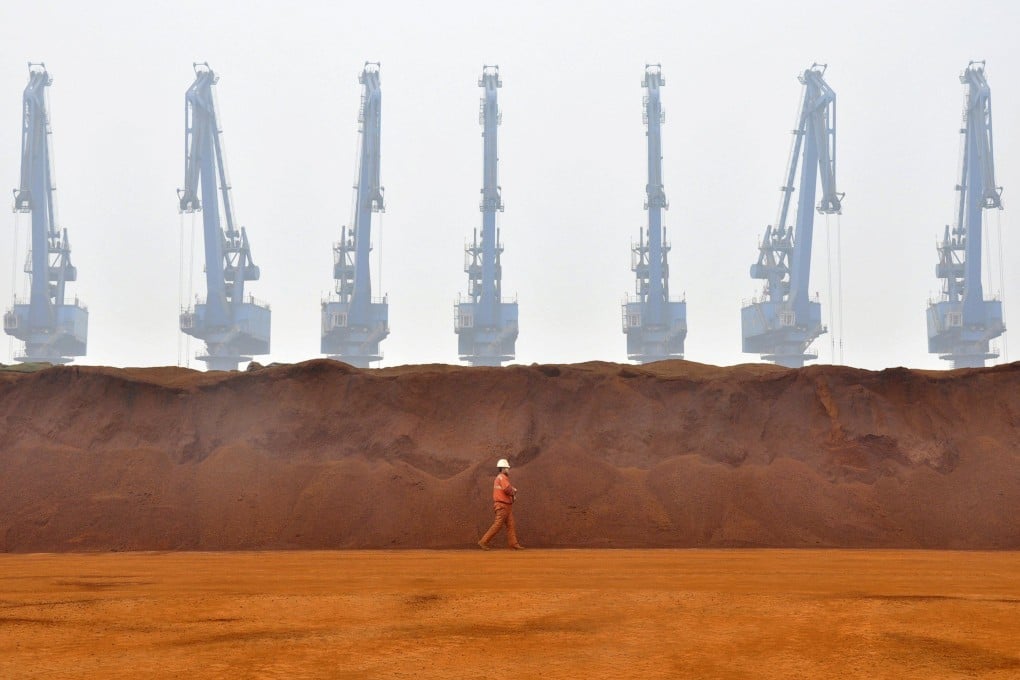Advertisement
Abacus | Evergrande, Sinic, Fantasia: a tidal wave of Chinese debt is about to sink Australia’s economic recovery
- Seemingly impervious to recessions for decades, cracks started to appear in the Australian economy in 2020 and now it is staring into a deep crevasse
- The strategy of digging dirt and selling it to the Chinese to keep the plates spinning needs to be rethought, as the demand from its biggest customer rapidly disappears
Reading Time:5 minutes
Why you can trust SCMP
99+

As we know, dirt in Australia is rich in important minerals and there is a lot of it. Early settlers discovered large quantities of iron ore deposits and digging it up to make iron became a meaningful business in the early 1900s. One hundred years or so later, the Australian economy has become more reliant than ever on revenues from iron ore.
Yet Australia’s mining is not driven by domestic consumption but rather by overseas buyers, with around two-thirds of its total 2020 export revenues coming from minerals shipped overseas.
Australia’s economic growth continued year after year, with no sign of a recession, and money sloshed around all sectors of the economy until the pandemic hit and almost everything slowed to a crawl. I say almost everything because iron kept being dug up at a rapid pace, along with copper ore and coal, to meet strong demand from the Chinese property sector and railway expansion, which also drove a strong upward trend in prices.
In 2020, iron ore alone made up 41 per cent of all exports from Australia by value, at about A$149 billion.
Unfortunately, 2021 has proved to be the year that the merry-go-round stopped and Australia’s mining industry, and indeed its economy, reached a turning point. The era in which China could be trusted to buy an abundance of Australian dirt, and pay good money for it too, has come to an end – and probably for good.
Three things have happened recently that dashed hopes that mining would drive the economic recovery.
China has become progressively less keen on spending hard currency on imports, as suggested by the way it suddenly backed away from Australian products in 2020 blamed on a trade spat. This included copper, sugar, timber, barley and the tons of lobsters it refused to pay for or allow in. It would appear Beijing is holding onto its hard currency, indicating it may be getting harder to obtain.

Advertisement
